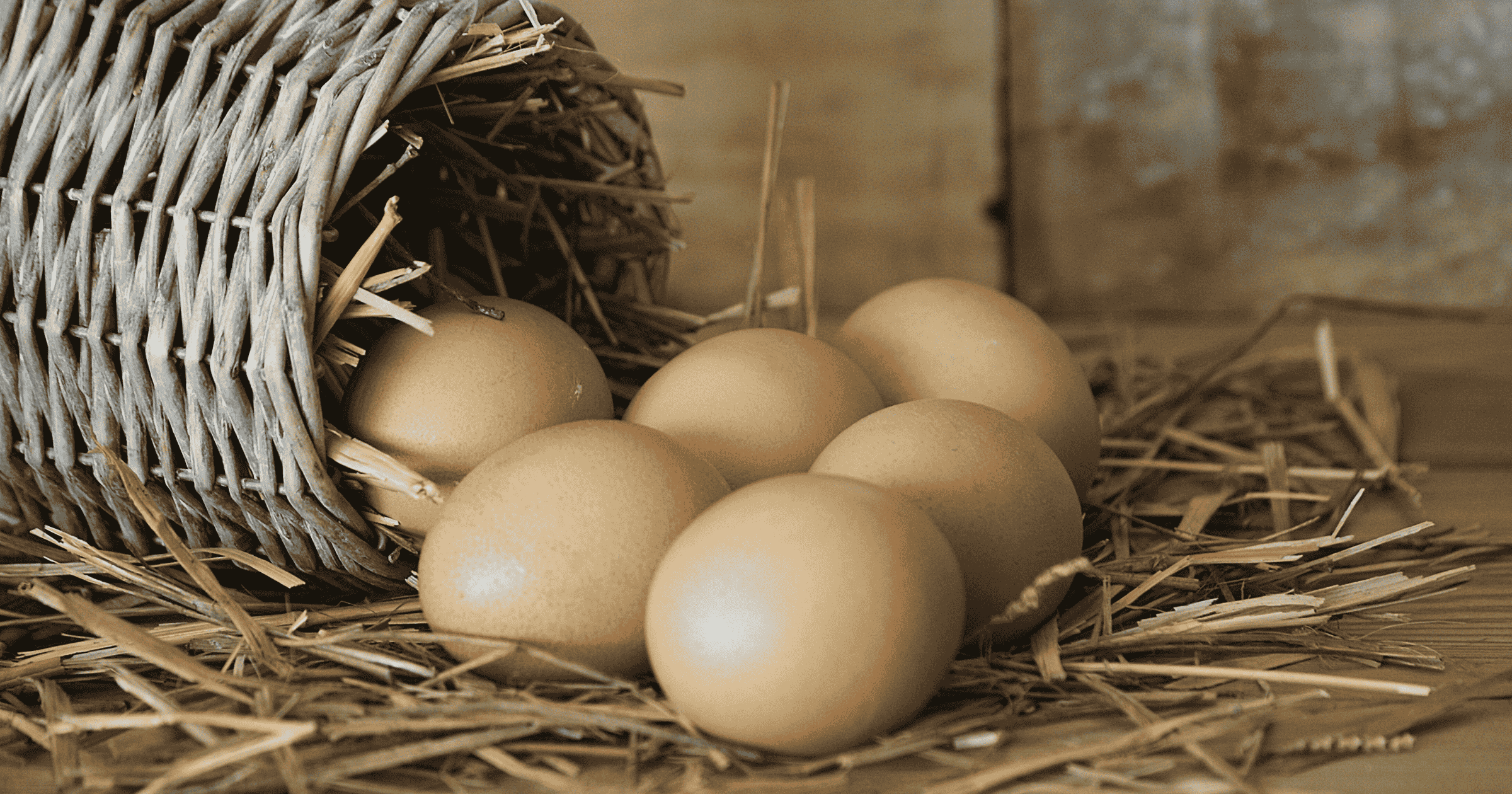
08 Apr How to Preserve Eggs Naturally in Nigeria
In Nigeria’s hot climate, preserving eggs naturally without a refrigerator can be a challenge. But fear not—there are several age-old methods that can help keep your eggs fresh for weeks or even months without the need for electricity or expensive storage.
Whether you’re dealing with a backyard chicken farm in Lagos or buying fresh eggs from the local market, these preservation techniques will ensure that your eggs stay safe and edible, even during power outages or periods of high heat.
Let’s dive into the best ways to preserve eggs naturally in Nigeria.
Why Do We Need to Preserve Eggs?
Eggs are a staple in many Nigerian kitchens. Whether you use them for frying, boiling, or making stews, eggs are a versatile food. However, in the tropical heat of Nigeria, fresh eggs can spoil quickly, especially if stored improperly. Without a refrigerator, eggs may last only a few days before they go bad.
Preserving eggs naturally ensures that you:
- Avoid waste by extending the shelf life of eggs.
- Save money by buying eggs in bulk and preserving them.
- Enjoy fresh eggs at your convenience, even during power cuts.
Best Natural Ways to Preserve Eggs in Nigeria
Let’s explore the most effective natural methods that don’t require electricity but work wonders in Nigeria’s warm environment.
1. The Water Glass (Limewater) Method
The water glass method is one of the most effective ways to preserve eggs naturally for up to 6 months. It works by creating an alkaline environment that prevents bacteria from entering the egg through the shell.
How to do it:
- Mix one part sodium silicate (water glass) with 9 parts water.
- Place the eggs (with clean, uncracked shells) into a container, making sure they’re submerged in the limewater solution.
- Store the container in a cool, dark place (like a pantry).
- Eggs preserved this way will stay fresh for up to 6 months.
Pro Tip: Ensure that the eggs are not washed before storing, as the natural bloom (protective coating) on the shell helps keep bacteria out.
2. The Oil Coating Method
A simple method that requires vegetable oil or coconut oil involves coating the eggs to protect them from the elements and prevent air from entering the shell. This method works by sealing the pores of the egg.
How to do it:
- Pour a thin layer of vegetable oil or coconut oil into your hands and gently rub it over the entire surface of the eggs.
- Ensure that the oil covers every part of the egg to create a protective barrier.
- Store the eggs in a cool, dry place (not in the sun or direct heat).
- This method can preserve eggs for up to 2 months.
Pro Tip: Be sure not to overdo the oil; a light coating is enough to preserve the eggs.
3. The Saltwater Method
The saltwater method is another great way to preserve eggs naturally. The high salt content prevents bacterial growth and keeps the eggs from spoiling. It’s especially useful for long-term storage.
How to do it:
- Mix one pound of salt for every gallon of water.
- Gently place eggs in a clean, sterilized jar or container.
- Pour the saltwater solution over the eggs until they are fully submerged.
- Store the jar in a cool, dry place away from sunlight.
- This method can preserve eggs for up to 3 months.
Pro Tip: Ensure that the eggs are submerged in the saltwater solution at all times to prevent spoilage.
4. The Ash Method (Traditional Preservation)
The ash method is one of the oldest ways to preserve eggs and has been used in rural Nigeria for generations. The alkaline nature of wood ash helps protect the eggs from bacteria and extends their shelf life.
How to do it:
- Clean the eggs gently but don’t wash them, as moisture can cause spoiling.
- Pack the eggs in a container with fine ash (wood ash or volcanic ash).
- Cover the eggs completely, ensuring they’re not exposed to air.
- Store the eggs in a cool, dry place.
- Eggs preserved in ash can last 2–3 months.
Pro Tip: Be careful not to apply too much pressure on the eggs to avoid cracks.
5. The Clay Pot (Pottery) Method
This method uses the coolness of clay to help keep eggs fresh. It’s particularly useful in rural areas where access to refrigeration might be limited.
How to do it:
- Place eggs inside a clean clay pot or ceramic container.
- Cover the eggs with sand or fine soil (make sure the eggs are completely covered).
- Keep the pot in a cool, dry place, preferably in a shaded area.
- The eggs will stay fresh for several weeks.
Pro Tip: Clay pots are great because they maintain a relatively stable temperature compared to other storage methods.
Tips for Proper Egg Storage in Nigeria’s Hot Climate
To maximize the effectiveness of these preservation methods, follow these additional storage tips:
- Store eggs in a cool, dry place: Avoid areas that get direct sunlight, as this can accelerate spoilage.
- Avoid washing eggs before storage: The natural coating on the shell helps keep bacteria out. Only wash eggs right before you plan to use them.
- Check eggs regularly: Examine eggs for cracks, strange smells, or discoloration. Discard any eggs that seem off.
- Use a rotating system: If you’re storing eggs long-term, make sure to use older eggs first, and avoid leaving eggs in storage for too long.
How to Tell If an Egg is Still Good
If you’ve preserved your eggs for a while, here’s a simple test to check if they’re still safe to eat:
- Water Test: Place an egg in a bowl of water.
- If it sinks and lays flat, it’s fresh.
- If it stands upright but doesn’t float, it’s still okay to eat.
- If it floats, it’s time to discard it.
Conclusion: Natural Egg Preservation in Nigeria
Preserving eggs naturally is a practical and effective way to extend their shelf life without refrigeration in Nigeria’s hot climate.
By using methods like the water glass method, oil coating, saltwater, ash, or the clay pot method, you can keep your eggs fresh for weeks, even months, without any fancy equipment or electricity.
So, the next time you buy eggs in bulk, don’t worry about them spoiling in a few days. Try one of these natural preservation techniques, and you’ll have fresh eggs on hand whenever you need them.
Ready to Start Preserving Your Eggs?
If you’ve tried any of these methods, share your experience with us in the comments below! We’d love to hear how you preserve your eggs naturally in Nigeria.ry the water test or shake it up before you fry it up!
Recent posts
- How to Make Akara and Moi Moi with Farm Eggs | Delicious Nigerian Recipes
- How to Make Perfect Omelettes with Farm Eggs | Easy, Delicious Recipe
- Easy Egg Salad Recipes with Farm Fresh Eggs | Delicious & Nutritious
- Deviled Eggs with Local Nigerian Ingredients | Easy Recipe
- Delicious Nigerian Dishes Made with Eggs | Tasty Egg Recipes
Your cart
Your cart is currently empty!








No Comments